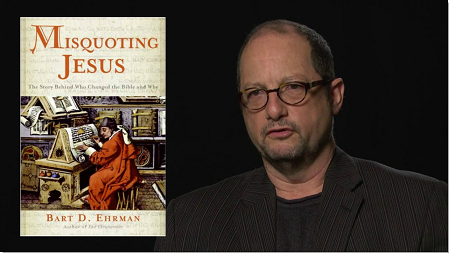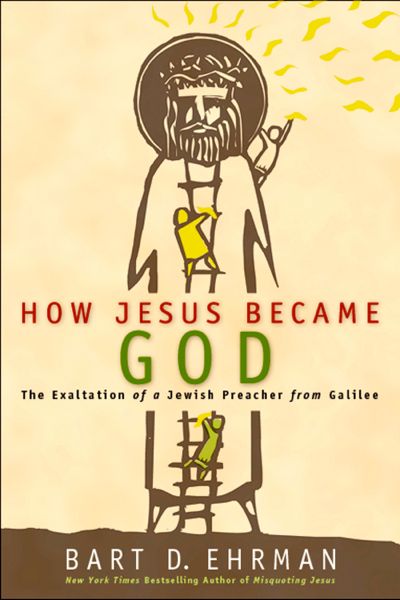|
Word Gems
exploring self-realization, sacred personhood, and full humanity
Prof. Bart D. Ehrman
|
When did Paul go to Jerusalem to meet the other apostles? Acts and Galatians offer specific but antithetical answers.
|
return to the main-page article on "Bible"
|
Editor's prefatory comment:
Dr. Ehrman explains that the 5700 early copies of the New Testament – copies of copies of copies – contain hundreds of thousands of discrepancies.
Many of these are inconsequential but a significant number alter the meaning of the text in important ways. Most of these constituted mere human error in copying but some of them, it appears, were purposefully injected into the text by editorial judgment of scribes.
This entire area of scholarship is far more complex than most realize, leading the objective reviewer to understand that, in many cases, we have no knowledge of the original text of the New Testament.
In addition to Dr. Ehrman’s books, his lectures are available on youtube; for example: https://www.youtube.com/watch?v=pfheSAcCsrE&t=12s

|
Dr. Ehrman speaks of this in his book, "Misquoting Jesus."
“… Paul says that after he was converted on the way to Damascus he did not go to Jerusalem to see those who were apostles before him (Gal. 1:16-17), whereas the book of Acts says that this was the first thing he did after leaving Damascus [Acts, chapter 9].”
This issue of timetable is significant. In my Galatians commentary, I point out that Paul had a good reason for wanting everyone to know that it was some years after his conversion that he visited the Jerusalem apostles.
This was important to Paul because there was a lot of loose talk at the time suggesting, “Paul isn’t a real apostle, he’s just a copy-cat, a johnny-come-lately. Whatever he learned about the gospel, he learned it from Peter in Jerusalem.” And so Paul makes a big point about not having been anywhere near Jerusalem for some years after Damascus.
However, the writer of Acts gets this all wrong. In Acts, Paul virtually immediately goes to Jerusalem to meet the hierarchy. And the HQ apostles are afraid of Paul – there is no mention of this in Galatians, but only official congeniality, suggesting that Paul's work was well known by this time.
Further, in Acts, Barnabas, whom everyone trusted (“the son of consolation”), speaks up for Paul in Jerusalem, saying he’s a good guy, as he references Paul’s then-recent Damascus-road mystical experience.
Galatians is the earliest document in the New Testament, was written 15 to 30 years before the Synoptics and Acts, and lays down a certain format of events - but the writer of Acts wants it to be different.
|
Editor's last word:
Prof. Ehrman points out that Acts differs from Paul’s letters in a number of ways, but the discrepancy concerning when Paul went to Jerusalem is not a minor item. Paul in Galatians makes much of the circumstances surrounding this visit. This was not a light matter for Paul and he wants to set the record straight, affirming, and most adamantly punching with, “before God, I lie not!” (Gal. 1:20). Considering this extra-duty confirmation, it is unconscionable that Acts would attempt to modify the details.
What is going on with this? Erhman offers other evidence – and I have to agree – that Acts, written circa. 85 AD, more than 30 years after Galatians, appears to be a forged document. The writer attempts, by various means, to minimize Paul’s stature in the Christian community, and to elevate Peter.
The famous fisherman did not fare well in the Galatians account, with Paul accusing him of bigotry and racism, publicly, before the whole congregation! However, as the first century winded down -- with both Paul and Peter having passed from the scene -- those with a different political agenda began to emerge, now wanting to aggrandize the memory of Peter.
Concerning the problem of political agenda, see what happened with John and the Gospel Of Thomas.
|
|


